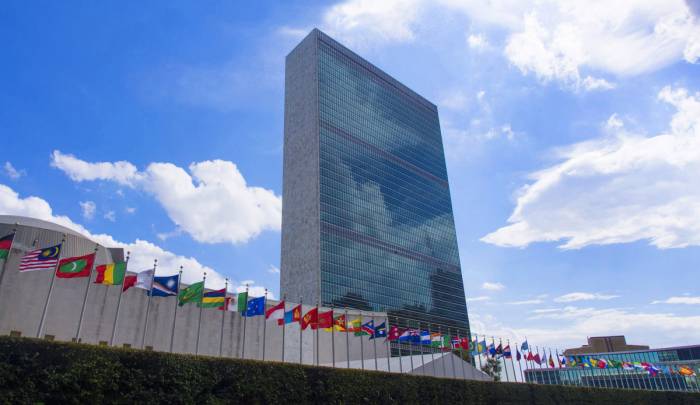UN Considers Stricter Global Alcohol Regulations Amid Debate Over Health Risks
Political Declaration from New York meeting may shape future policies on alcohol sales, warning labels, and industry involvement worldwide
2025-09-24

On September 25, the United Nations will hold a high-level meeting in New York that could reshape global alcohol policy for years to come. The event, known as the fourth High Level Meeting on Noncommunicable Diseases (NCDs) and Mental Health, brings together ministers, heads of state, public health officials, and industry representatives to debate whether alcohol should be regulated as strictly as tobacco.
The World Health Organization (WHO) has identified alcohol as one of five major risk factors for NCDs, which account for 74% of all deaths worldwide. Alongside tobacco use, physical inactivity, unhealthy diets, and air pollution, the harmful use of alcohol is under scrutiny. The WHO is urging the UN to consider new taxes and restrictions on alcohol products, arguing that stronger measures are needed to reduce related health harms.
The outcome of the meeting will be a Political Declaration that sets the global agenda for NCDs and mental health through 2030 and beyond. This document could provide governments with justification for new warning labels, higher taxes, and tighter controls on alcohol sales.
Industry interests will be represented by the International Association for Responsible Drinking (IARD), led by CEO Julian Braithwaite. IARD is funded by 13 of the world’s largest alcohol companies, including ABInBev, Asahi Group, Diageo, Heineken, and Moët-Hennessy. Braithwaite, a former UK diplomat with experience in international health crises and economic policy, took over as IARD’s president in March 2024.
Braithwaite argues that current international policy already targets harmful consumption rather than moderate drinking. He points to a 2010 UN strategy agreed upon by all WHO member states that focuses on reducing harmful use through cooperation between governments, civil society, and industry. According to Braithwaite, this approach is working: “The WHO published data last year that said alcohol attributable mortality had fallen by 20% globally between 2010 and 2019.” He also notes that per capita alcohol consumption is on track to drop by 20% from 2010 to 2030.
However, temperance groups and public health advocates are pushing for stricter language in the Political Declaration. They want the phrase “harmful use” replaced with language that treats all alcohol consumption as risky. This change would make it easier for countries to mandate cancer warning labels and restrict availability. Movendi International, a leading temperance group, accuses IARD of distorting facts and acting as a front for “Big Alcohol.” They argue that while rates may have dropped relative to population growth, the absolute number of alcohol-related deaths has not changed significantly since 2010.
The debate over language is more than semantics. If the UN recognizes alcohol as inherently harmful—similar to tobacco—it could lead to sweeping regulatory changes worldwide. The current draft of the Political Declaration retains the “harmful use” terminology and maintains a role for industry in policy discussions. It also stops short of endorsing the WHO’s recommended “Best Buys,” which include higher taxes and restricted sales.
Public health advocates have responded by mobilizing supporters to pressure governments ahead of tomorrow’s meeting. Last week, the Académie Internationale du Vin—a group representing prominent wine experts from 20 countries—called on world leaders to reject stricter WHO proposals.
As negotiations continue behind closed doors at UN headquarters, both sides are watching closely. The final wording of the Political Declaration will determine how governments approach alcohol regulation over the next decade. For Braithwaite and IARD, maintaining a distinction between moderate and harmful drinking is crucial—not only for public health policy but also for the future of an industry with deep cultural roots.
The meeting’s outcome will be closely monitored by governments, industry leaders, public health organizations, and advocacy groups around the world. The decisions made in New York this week could influence how billions of people drink—and how those drinks are regulated—for years to come.
Founded in 2007, Vinetur® is a registered trademark of VGSC S.L. with a long history in the wine industry.
VGSC, S.L. with VAT number B70255591 is a spanish company legally registered in the Commercial Register of the city of Santiago de Compostela, with registration number: Bulletin 181, Reference 356049 in Volume 13, Page 107, Section 6, Sheet 45028, Entry 2.
Email: [email protected]
Headquarters and offices located in Vilagarcia de Arousa, Spain.